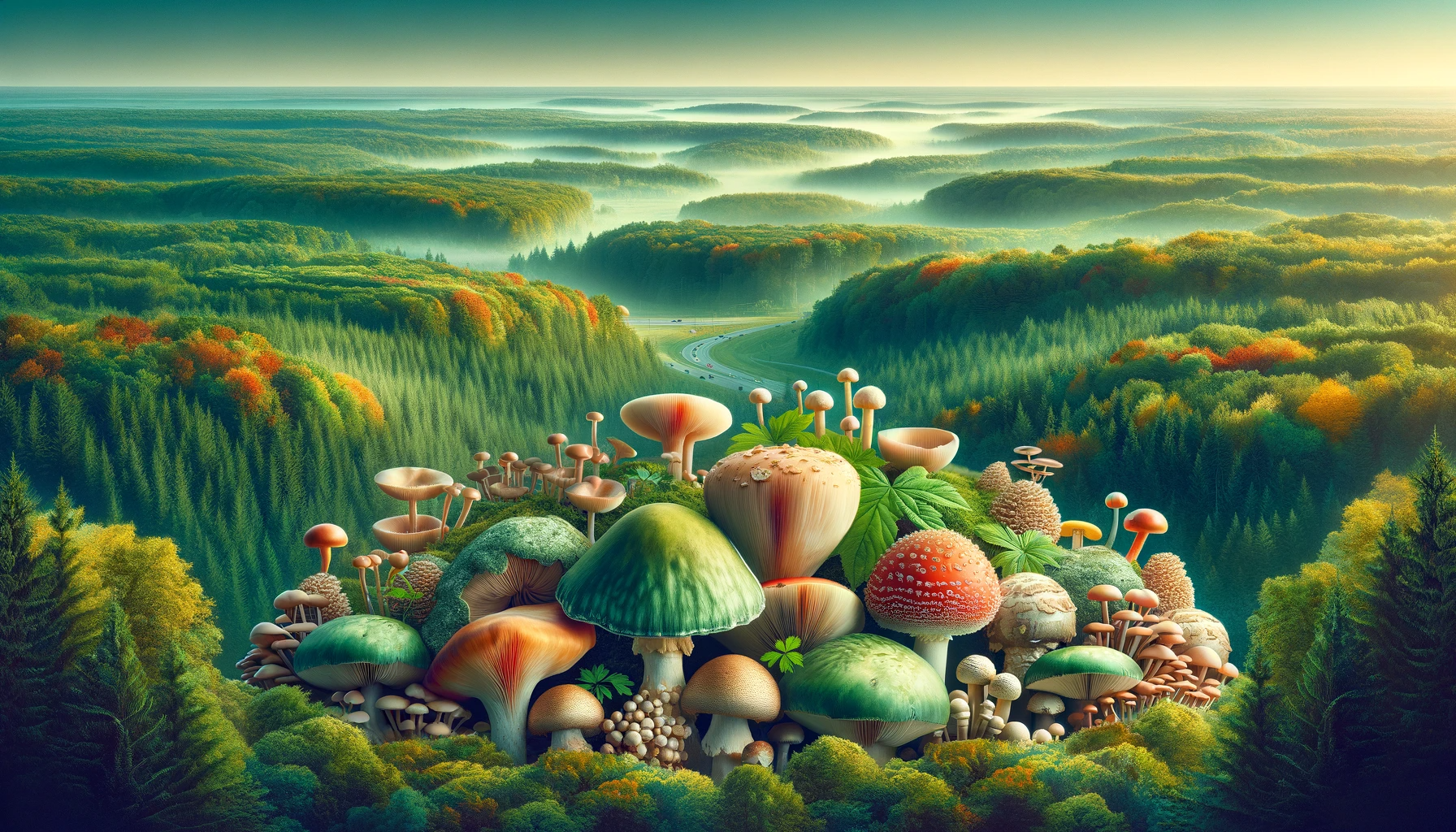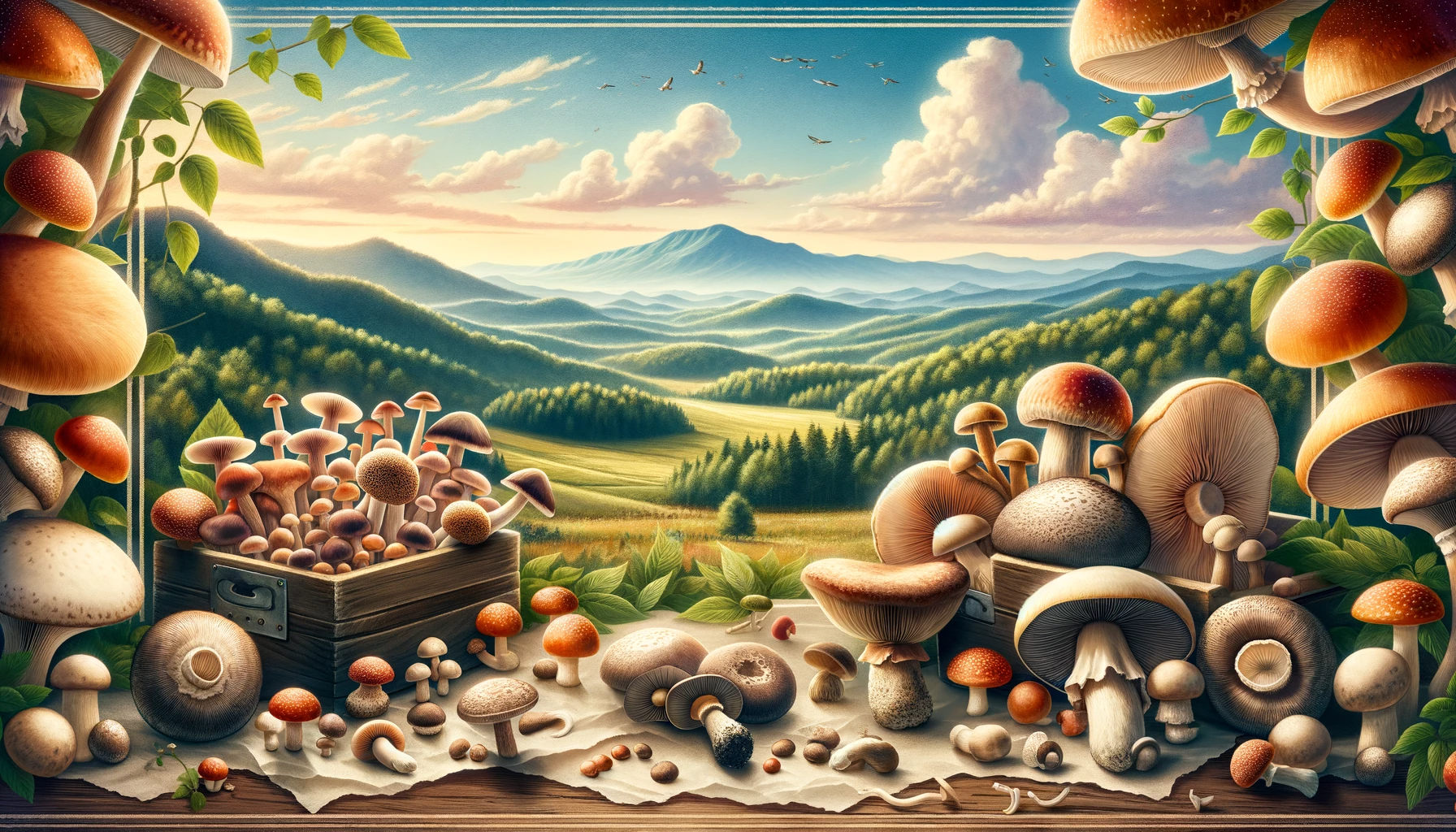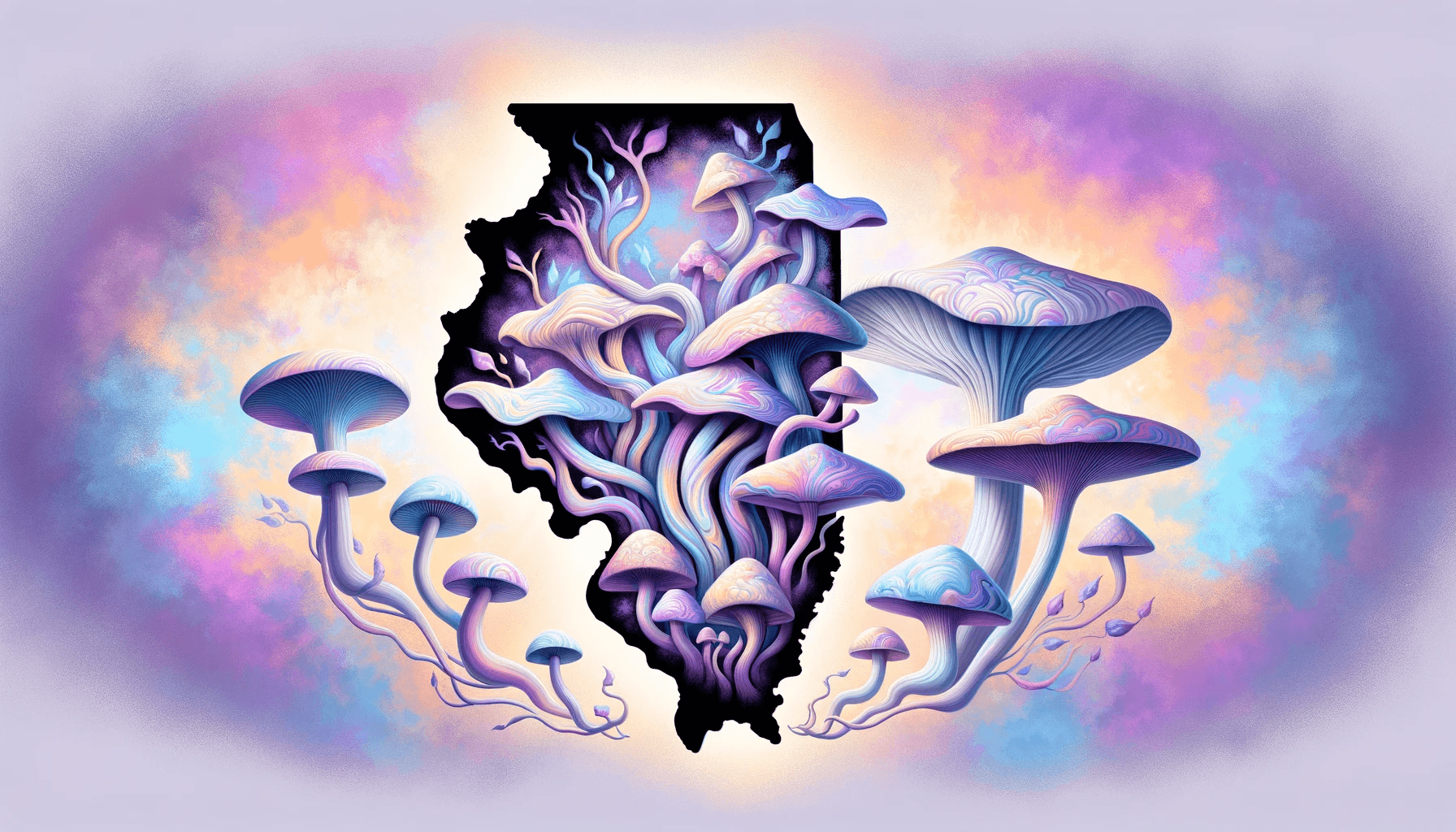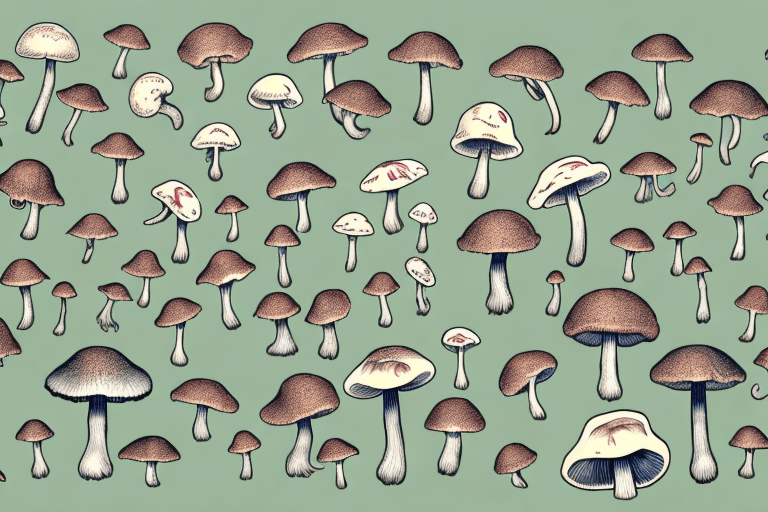Mushrooms have long been a topic of intrigue and debate, particularly when it comes to their legal status. In Alabama, where does the law stand regarding these curious fungi? Let's delve into the current legal landscape, the history of legislation, the potential consequences of possession, and explore a legal alternative: Amanita Muscaria.
The Current Legal Status of Magic Mushrooms in Alabama
In Alabama, magic mushrooms, also known as psilocybin mushrooms, are classified as Schedule I controlled substances. This means that they are regarded as having a high potential for abuse and no accepted medical use.
Possessing, manufacturing, or distributing magic mushrooms in Alabama can lead to serious criminal penalties, including fines and imprisonment. The severity of the consequences depends on various factors, such as the amount of mushrooms in possession and whether the individual has any prior convictions.
Alabama's classification of magic mushrooms as Schedule I controlled substances aligns with the federal government's stance on psilocybin. The federal Controlled Substances Act also categorizes psilocybin as a Schedule I substance, alongside drugs like heroin and LSD. This classification places magic mushrooms in the same legal category as some of the most dangerous and addictive drugs.
The decision to classify magic mushrooms as Schedule I substances is based on the belief that they have a high potential for abuse and no accepted medical use. However, there is a growing body of research suggesting that psilocybin, the active compound in magic mushrooms, may have therapeutic benefits. Studies have shown promising results in the treatment of mental health conditions such as depression, anxiety, and PTSD.
Despite the potential therapeutic uses of psilocybin, Alabama's strict laws make it illegal to possess or use magic mushrooms for any purpose. This means that individuals who believe in the potential benefits of psilocybin therapy are unable to legally access it within the state.
Enforcement of the laws surrounding magic mushrooms in Alabama is taken seriously. Law enforcement agencies actively target individuals involved in the possession, manufacturing, or distribution of psilocybin mushrooms. The penalties for these offenses can be severe, with fines ranging from thousands to tens of thousands of dollars and imprisonment for several years.
It is important to note that the legal landscape regarding magic mushrooms is evolving. In recent years, there has been a growing movement to decriminalize or legalize psilocybin in various states across the United States. Advocates argue that the therapeutic potential of psilocybin should be explored and that criminalizing its use hinders scientific research and denies individuals access to potentially life-changing treatments.
While Alabama currently maintains strict laws against magic mushrooms, it is worth keeping an eye on developments in other states and at the federal level. Changes in legislation and shifting attitudes towards psilocybin could potentially impact the legal status of magic mushrooms in Alabama in the future.
Legislation Over the Years
The legal status of magic mushrooms in Alabama has a complex and evolving history. In 1971, Alabama became one of the first states to classify psilocybin as a Schedule I controlled substance, placing it in the same category as drugs like heroin and LSD. This classification meant that possessing, selling, or manufacturing magic mushrooms became illegal, carrying severe penalties.
However, as public opinion and scientific understanding of psychedelics have evolved, so too have the discussions surrounding their legal status. In recent years, there have been efforts to modify the laws surrounding magic mushrooms in Alabama. Proposals for decriminalization or medical use have been introduced, sparking debates among lawmakers, medical professionals, and the general public.
Advocates for decriminalization argue that the criminalization of magic mushrooms is an ineffective approach, pointing to studies that suggest potential therapeutic benefits of psilocybin in treating mental health conditions such as depression, anxiety, and PTSD. They argue that criminalization only perpetuates the stigma surrounding psychedelics and prevents individuals from accessing potential therapeutic options.
On the other hand, opponents of decriminalization express concerns about the potential misuse and abuse of magic mushrooms. They argue that the hallucinogenic effects of psilocybin can lead to unpredictable behavior and pose risks to public safety. They also emphasize the need for further research to fully understand the long-term effects and potential risks associated with magic mushroom use.
Despite the ongoing discussions and debates, no significant changes have been enacted in Alabama's legislation regarding magic mushrooms as of now. The legal status of psilocybin remains unchanged, and possession, sale, or manufacturing of magic mushrooms is still considered a criminal offense.
It is worth noting that while Alabama's stance on magic mushrooms remains strict, other states have taken different approaches. For example, in recent years, several states, including Oregon and Colorado, have decriminalized or legalized the medical use of psilocybin. These developments have sparked further conversations about the potential benefits and risks of magic mushrooms, prompting some to question whether Alabama should reconsider its current stance.
As the understanding of psychedelics continues to evolve and more research is conducted, it is likely that the discussions surrounding the legal status of magic mushrooms will persist. Whether Alabama will eventually follow the footsteps of other states in reevaluating its legislation remains uncertain, but the ongoing debates highlight the complex nature of drug policy and the need for evidence-based decision-making.
Consequences of Possession
Possessing magic mushrooms in Alabama can result in serious legal consequences. The penalties vary depending on the circumstances, but they can include significant fines and imprisonment.
First-time offenders caught with a small amount of mushrooms may face misdemeanor charges, which can lead to up to one year in jail and a fine of up to $6,000. Repeat offenders or those with larger quantities can face felony charges, with longer prison sentences and higher fines.
It is important to note that the consequences of possession extend beyond just legal ramifications. The use of magic mushrooms can have profound effects on an individual's physical and mental well-being. While some proponents argue for the potential therapeutic benefits of psychedelic substances, it is crucial to approach their use with caution and under the guidance of trained professionals.
Studies have shown that magic mushrooms contain a naturally occurring compound called psilocybin, which can induce hallucinations, altered perceptions, and intense emotional experiences. These effects can be unpredictable and vary widely from person to person. While some individuals may have positive experiences, others may encounter negative psychological effects such as anxiety, paranoia, or even psychosis.
Furthermore, the long-term effects of magic mushroom use are still not fully understood. Research suggests that repeated and heavy use of psilocybin mushrooms may lead to persistent changes in brain function and structure. These changes could potentially impact an individual's cognition, mood, and overall mental health.
It is also worth mentioning that the legality of magic mushrooms varies across different jurisdictions. While they are classified as a Schedule I controlled substance at the federal level in the United States, some states, such as Oregon and Colorado, have decriminalized or legalized their use for therapeutic purposes. However, it is essential to familiarize oneself with the specific laws and regulations of the jurisdiction in which one resides before engaging in any activities involving magic mushrooms.
Given the potential legal and health risks associated with magic mushroom possession, it is crucial for individuals to make informed decisions and prioritize their well-being. Seeking professional advice, understanding the potential consequences, and exploring alternative approaches to address mental health concerns are all important steps to consider.
A Legal Alternative: Amanita Muscaria
While magic mushrooms are illegal in this state, there is an intriguing legal alternative – Amanita Muscaria. Also known as fly agaric, Amanita Muscaria is a mushroom that contains psychoactive compounds but is not classified as a controlled substance.
Residents who are curious about exploring the mind-altering properties of fungi may find Amanita Muscaria to be a fascinating option. This distinctive mushroom species is characterized by its red cap adorned with white spots, making it easily recognizable in the wild.
What is Amanita Muscaria?
Amanita Muscaria has a rich history of use in various cultural practices and rituals. It has been revered and utilized for centuries by different indigenous communities around the world. From Siberia to North America, this mushroom has played a significant role in spiritual and shamanic traditions.
Psychoactive Effects of Amanita Muscaria
Amanita Muscaria contains several psychoactive compounds, including muscimol and ibotenic acid. These compounds interact with the brain's receptors, producing a range of effects that can vary from person to person.
When consumed, Amanita Muscaria can induce feelings of euphoria, relaxation, and altered perception. Some users have reported experiencing a dream-like state, where colors appear more vibrant, and sounds become more pronounced. Others have described a sense of tranquility and introspection.
However, it is crucial to note that the psychoactive compounds in Amanita Muscaria can also cause adverse effects. Nausea, dizziness, and confusion are among the potential side effects that some individuals may experience. Therefore, it is essential to approach its use with caution and in moderation.
Comparing the Psychoactive Properties of Amanita Muscaria and Magic Mushrooms
While both Amanita Muscaria and magic mushrooms contain psychoactive compounds, their effects and potency differ significantly. Magic mushrooms typically contain psilocybin and psilocin, which can induce intense visual and sensory experiences, introspection, and altered perception of time.
On the other hand, Amanita Muscaria's effects are generally less intense and characterized by relaxation and sedation. Its psychoactive properties are often described as dream-like and hypnotic, offering a unique experience for those seeking a different kind of journey.
Why Choose Amanita Muscaria?
For individuals seeking a legal alternative to magic mushrooms, Amanita Muscaria offers an intriguing option. Its unique psychoactive effects can provide an alternative experience for those curious about exploring the mind-altering properties of fungi while staying within the bounds of the law.
Exploring the world of psychoactive mushrooms can be a fascinating and enlightening journey. However, it is essential to prioritize safety, education, and responsible use. Before embarking on any psychedelic experience, it is advisable to consult with knowledgeable individuals, such as experienced psychonauts or medical professionals, who can provide guidance and support.
Remember, the human mind is a complex and delicate entity, and altering its state should always be approached with respect and caution. By staying informed, practicing harm reduction techniques, and being mindful of your own mental and physical well-being, you can make the most of your exploration into the realm of psychedelic experiences.
Conclusion
In Alabama, magic mushrooms remain illegal and classified as Schedule I controlled substances, carrying significant legal penalties.
For those interested in exploring the psychedelic properties of fungi within the boundaries of the law, Amanita Muscaria serves as a legal alternative. However, it is important to exercise caution, conduct thorough research,and consider legal regulations before using or possessing any substances, including Amanita Muscaria.





